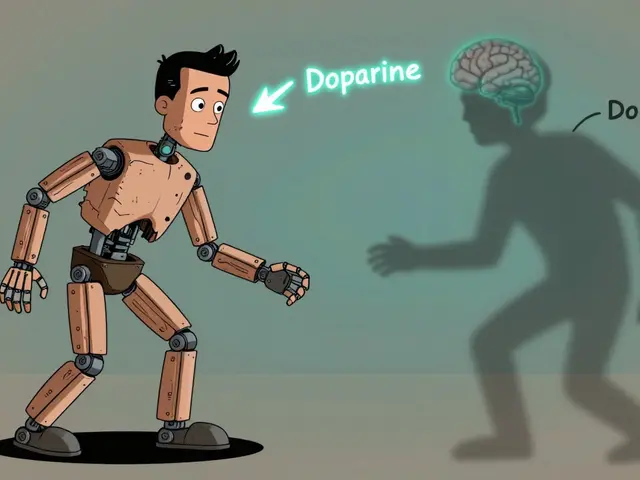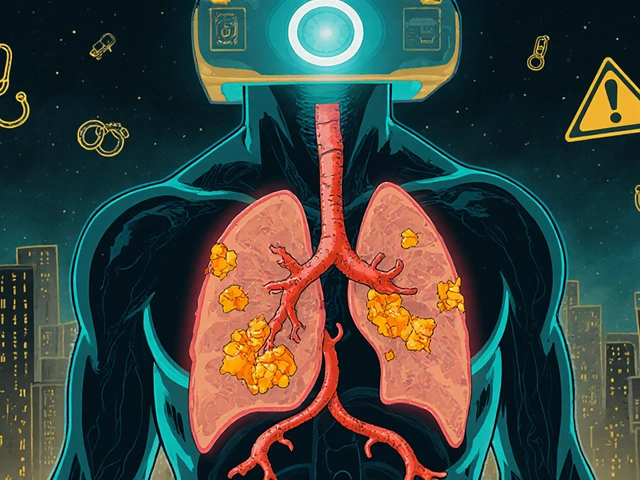Antipsychotic Alternatives: What You Need to Know
When exploring antipsychotic alternatives, non‑traditional medicines, supplements, or therapeutic approaches used instead of conventional antipsychotic drugs to manage psychotic symptoms. Also known as non‑antipsychotic options, it offers a way to reduce side‑effects while still addressing core issues like hallucinations or delusions. This tag pulls together articles that break down the science, safety concerns, and real‑world use cases, so you can decide if an alternative fits your situation.
Traditional antipsychotics, the mainstay drugs for schizophrenia, bipolar disorder, and other psychotic conditions work by blocking dopamine receptors, which can calm severe thoughts but often bring weight gain, metabolic changes, or movement disorders. Knowing how these drugs function helps you weigh whether a different route might be better for you or a loved one. Many readers wonder if switching to an alternative means abandoning treatment—most experts say it’s about complementing or carefully tapering, not quitting outright.
Why Psychosis Influences the Choice of Alternatives
Psychosis, a mental state marked by a loss of touch with reality, including hallucinations and delusions isn’t a single disease; it appears in schizophrenia, schizoaffective disorder, severe depression, and even substance‑induced states. The severity, duration, and underlying cause all dictate which alternative makes sense. For acute episodes, short‑term low‑dose antipsychotics may still be required, but for maintenance, clinicians might add omega‑3 fatty acids, cognitive‑behavioral therapy, or careful use of certain mood stabilizers. Understanding that psychosis itself drives the need for a balanced approach creates a logical link: psychosis influences the selection of antipsychotic alternatives.
One of the most frequently discussed alternatives is Seroquel (quetiapine), an atypical antipsychotic often repurposed at low doses for sleep or anxiety. While it’s still an antipsychotic, its unique receptor profile means it can sometimes serve as a bridge between full‑strength meds and non‑pharmacologic strategies. Articles in this collection compare Seroquel’s side‑effect profile to other options, showing when it counts as a true alternative versus a milder version of the same drug class.
Another major cluster revolves around mood stabilizers like lithium or valproate, which many patients use to smooth out mood swings that can trigger psychotic breaks. These agents target different brain pathways than dopamine blockers, offering a way to keep symptoms in check without the typical antipsychotic baggage. The relationship can be summed up as: antipsychotic alternatives often include mood stabilizers, especially for bipolar‑related psychosis.
Beyond meds, lifestyle‑based alternatives appear throughout the posts: regular exercise, mindfulness meditation, and nutrition adjustments (especially reducing processed sugars) all show modest benefits for psychosis‑related stress. The idea is simple—antipsychotic alternatives require holistic management. When you pair a low‑dose medication with structured therapy and a healthy routine, many patients report fewer side‑effects and better overall functioning.
Safety is the thread that ties every article together. Whether you’re looking at the newest supplement, an off‑label low‑dose drug, or a psychotherapy technique, each option demands monitoring—blood work for liver function, regular mental status checks, and open communication with your provider. The collective wisdom in this tag stresses that antipsychotic alternatives demand careful oversight, just like any prescription medication.
Now that you see how psychosis, traditional antipsychotics, Seroquel, mood stabilizers, and lifestyle changes intersect, you’re ready to dive into the specific guides below. Each article breaks down a particular alternative, shares practical tips, and highlights what to watch for, giving you a roadmap to safer, more personalized care.

Clozapine vs Alternatives: Efficacy, Side Effects, and Choosing the Right Antipsychotic
A thorough comparison of Clozapine with common antipsychotic alternatives, covering efficacy, side effects, monitoring, and how to choose the right medication.




